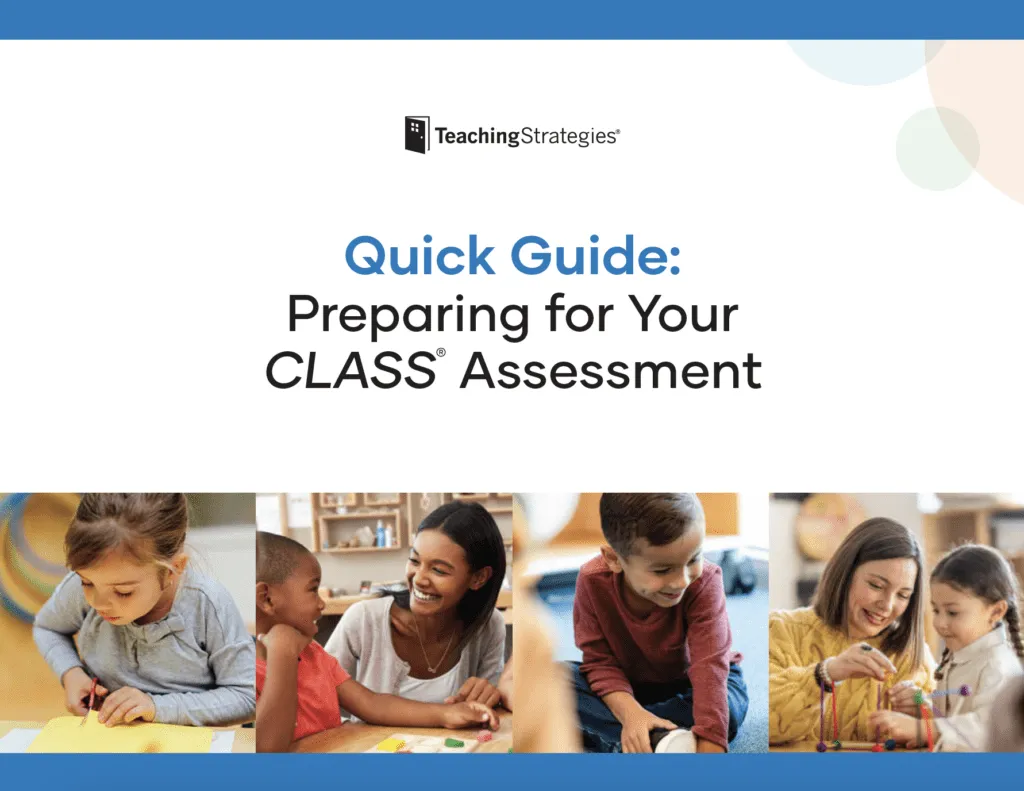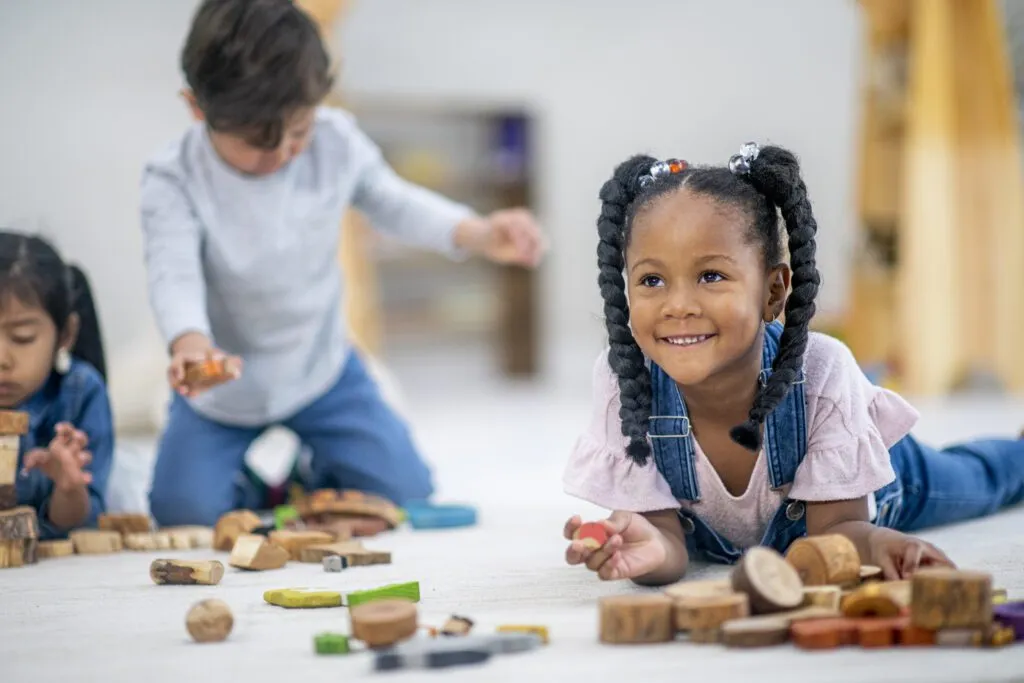Top 6 Questions Answered: CLASS Assessment and Teaching Strategies


To improve outcomes and quality, many programs use the Classroom Assessment Scoring System® (CLASS®) to measure the quality of teacher-child interactions. As a trusted partner to many early learning programs, Teaching Strategies is committed to supporting program leaders and teachers as they prepare for CLASS® assessment.
Below, we’ve answered the top 6 questions about CLASS ® Assessment asked by the Teaching Strategies community.
1. What is the CLASS ® Assessment?
The Classroom Assessment Scoring System® (CLASS®) is an assessment instrument that measures the quality of teacher-child interactions in early learning settings. CLASS® includes three domains or categories of teacher-child interactions that support children’s learning and development:
-
- Emotional Support,
- Classroom Organization, and
- Instructional Support.
Within each domain are dimensions that capture more specific details about teachers’ interactions with children.
2. How are CLASS® scores used?
CLASS® scores are used by a variety of programs across the country in different ways, including
- the Head Start Designated Renewal System,
- Quality Rating Improvement Systems (QRIS) evaluations,
- accreditation for private childcare programs, and
- state evaluation of universal pre-K programs.
Not every program across the country is required to participate in CLASS® Assessments, but for many it is an important part of their program’s data.
3. Does the CLASS® Assessment align to a particular curriculum or teaching pedagogy?
The CLASS® Assessment is curriculum agnostic, measuring the quality of teacher-child interactions, not content learning. However, a strong curriculum with a focus on teacher-child interactions will help prepare teachers for their CLASS® observation.
Many programs have found that using The Creative Curriculum to fidelity has helped prepare their teachers for their CLASS® Assessment. The Creative Curriculum is focused on better child outcomes through intentional support for educators and families and provides resources that enable high-quality teaching and learning experiences, including curriculum, assessment, family engagement, professional development, and coaching.
4. What data can a program learn from their CLASS® scores?
CLASS® is meant to be used to measure teacher-child interactions. Scoring is used to quantify what is observed and organized in categories that are developmentally appropriate for specific age groups. For preschool children, those are emotional support, classroom organization, and instructional support. Programs can use the data to determine which interactions are effective in driving improved child outcomes and improved teaching practices.
5. Should programs share teachers’ individual CLASS® scores with them?
Sharing a teacher’s individual CLASS® scores with them is a good way to help them continually improve their teaching practice and prepare for their next CLASS® Assessment. For teachers who need improvement in specific domains, the Teaching Strategies Teacher Professional Development Membership offers many on-demand professional development courses that align with CLASS® domains.
6. What is the best way to prepare teachers for their CLASS® Assessment?
Teachers who are confident in the classroom, with strong teacher-child interactions, will be best prepared for the CLASS® Assessment. Supporting teachers year-round with professional development and coaching, not just for CLASS® but to support their curriculum fidelity and best practices in the classroom, will best prepare teachers for their CLASS® Assessments. When using a curriculum, like The Creative Curriculum, to fidelity, a teacher can feel confident that they are providing children with the best possible classroom experience.
Teaching Strategies curriculum, assessment, and supplemental resources can help teachers focus on intentional planning that can strengthen classroom practices that will benefit teachers and children alike. To explore more ways Teaching Strategies can help your program prepare for its CLASS® Assessment, we have put together this helpful guide on Preparing for Your CLASS® Assessment.


